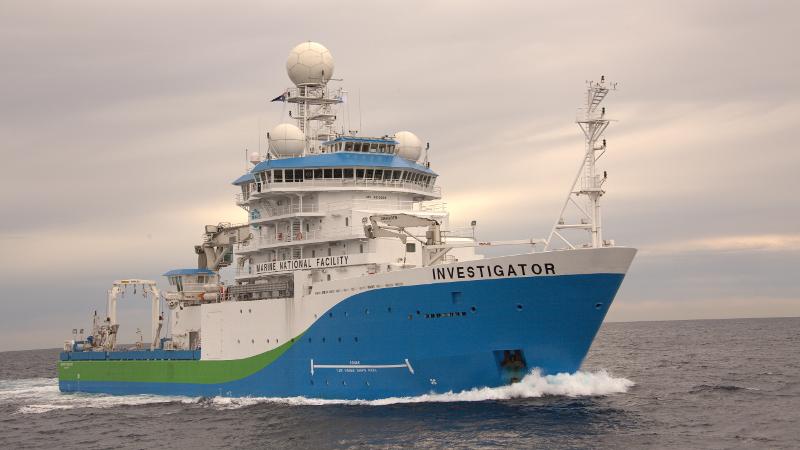
QUT scientists are among a group making the most of the CSIRO research vessel Investigator’s extended stay in Hobart during the COVID-19 shutdown, analysing valuable data about Hobart’s air quality.
While in port, scientists are using the ship’s advanced atmospheric instruments to monitor emissions and pollutants in the Hobart area for a range of scientific studies, including an urban air quality study led by QUT.
CSIRO atmospheric scientist from the Climate Science Centre Dr Melita Keywood said this study would seek to improve our understanding of the source and movement of ultrafine particles (UFP) in the atmosphere.
“UFP are aerosol particles smaller than 100 nanometres and pose risks to human health as they can penetrate deep into the lungs, pass into the blood stream and cause a variety of diseases”, Dr Keywood said.
The QUT study is investigating the impact of UFP in Brisbane, Sydney, Melbourne, Adelaide, Perth and Auckland to better assess the health risks they pose.
The data collected by RV Investigator during the extended Hobart port period will offer an additional city for the study.
RV Investigator’s Hobart monitoring program offers a unique snapshot of the city’s air quality during the COVID-19 shutdown, with the reduction in vehicle use and other changes in human activity.
Technical Officer with CSIRO, Ian McRobert, emphasised that the shutdown of at-sea operations of the ship didn’t mean that there was a shutdown in the science.
“With RV Investigator’s wide array of instruments for monitoring the atmosphere, we’ll be able to collect data for a range of emissions and pollutants in the area, including gases such as carbon dioxide and methane. The data collected will allow us to better understand Hobart’s complex atmospheric environment”, he said.
The data will also provide information to help inform the management of air quality in the Hobart area.
Collecting this wide range of atmospheric data is possible due to the advanced systems on board RV Investigator.
The instruments for atmospheric monitoring are permanently onboard the ship, meaning that every time it sails, and wherever the ship is docked, the instruments are collecting data.
“The ship may not currently be moving but the science still is!” Mr McRobert said.
RV Investigator is part of the CSIRO Marine National Facility, a national facility for collaborative marine research funded by the Australian Government.








